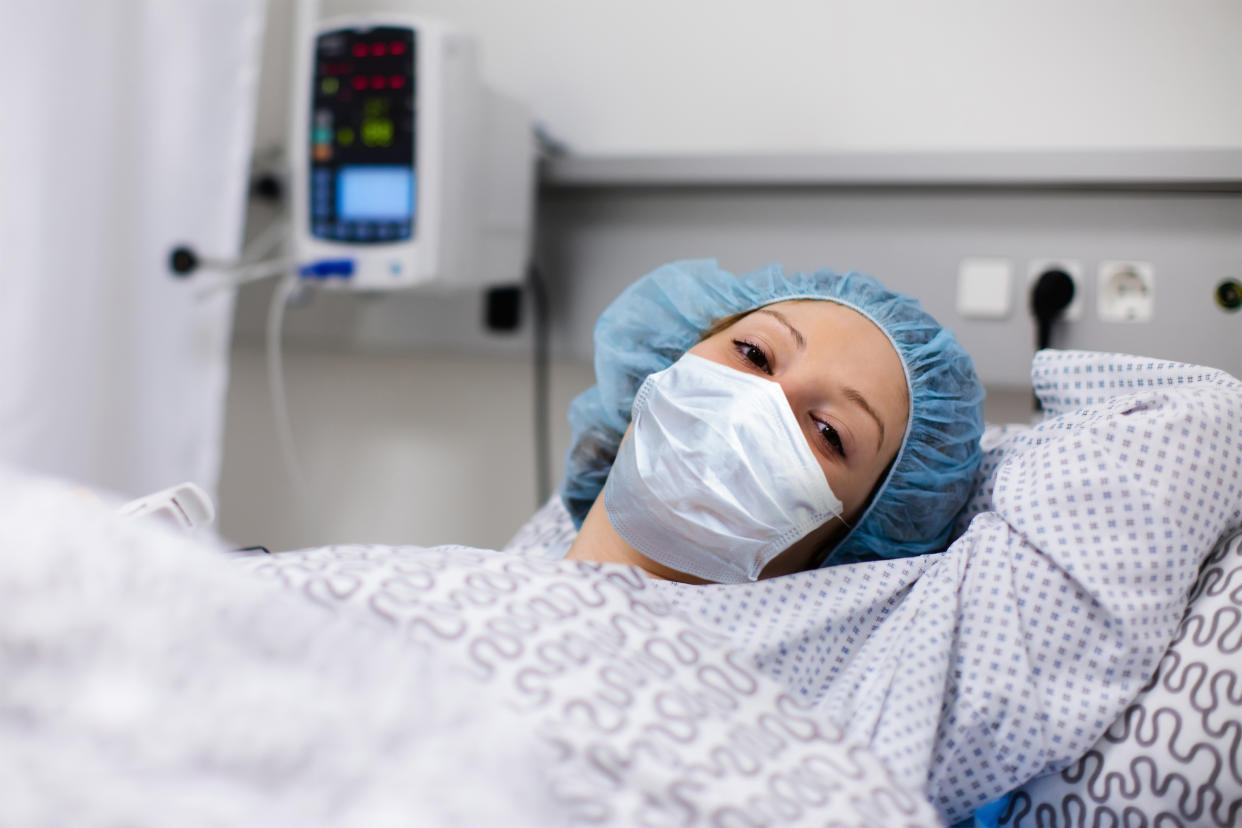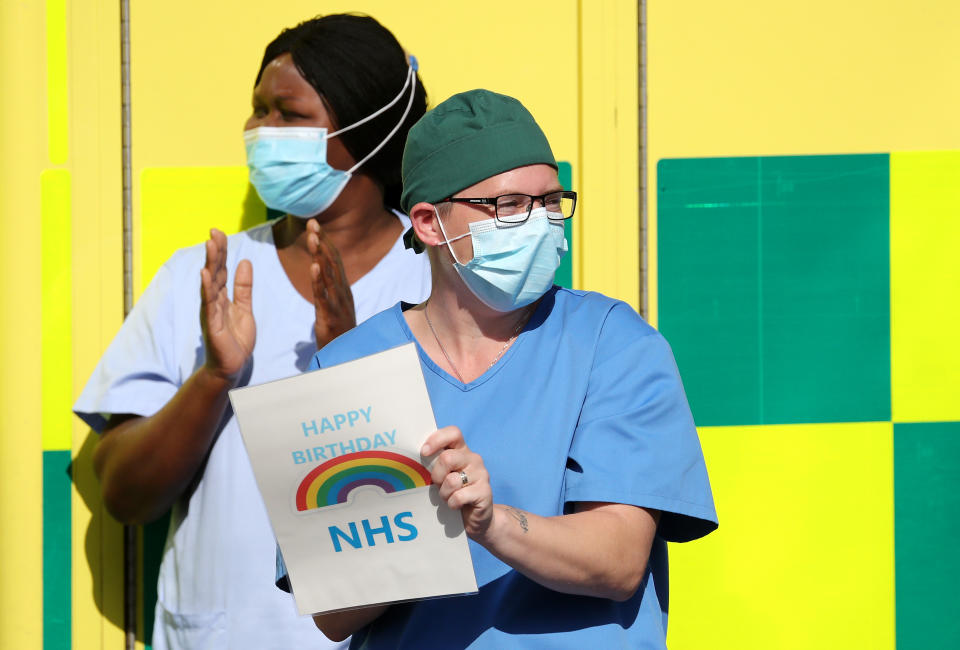Coronavirus could cause 35,000 'extra' cancer deaths

The coronavirus outbreak could lead to 35,000 “extra” cancer deaths in the UK, research suggests.
Scientists from DATA-CAN, the “health data research hub for cancer”, analysed information from eight NHS trusts.
After modelling different scenarios of how long services could take to get back to normal, they predicted a worst-case outcome of tens of thousands of “excess” fatalities.
Lockdown meant up to 2 million routine breast, bowel and cervical cancer screenings were postponed, with urgent referrals and treatments also potentially being delayed or even cancelled.
Early research suggests the coronavirus is mild in four out of five cases, but it can trigger a respiratory disease called COVID-19.

Cancer services ‘hoped to be back to normal by end of 2020’
Speaking of the results, lead scientist Professor Mark Lawler told the BBC: “Obviously scientists like to be right in terms of their analysis, but I hope I'm wrong in relation to that.”
One in two people born after 1960 in the UK will statistically develop some form of cancer in their life.
Peter Johnson, national clinical director for cancer NHS England, was behind the guidelines on the treatment of the disease amid the pandemic.
“We're working as fast as we can to put the services back together again, to restore the capacity and indeed to build more, so that we can deal with the people that have not been diagnosed during the time when the services have been running below 100%,” he told the BBC’s Panorama.
“I'm hoping we will get back to where we need to be by the end of the year.”
Clinical oncologist Professor Pat Price told Panorama the guidelines advised that radiotherapy, a go-to cancer treatment, be delayed or avoided in certain circumstances.
He called the move “very high-risk”, with potentially life-saving equipment “lying idle”. Professor Price said radiotherapy could have been safely administered during the coronavirus outbreak.
When lockdown was imposed on 23 March, Britons were told to only leave their home for “very limited purposes”, like shopping for essentials.
As a result, the number of people visiting their GP with suspected cancer symptoms who were then referred for tests dropped by 60% in April.
Urgent referrals were down 45% compared with pre-pandemic levels at the end of May, figures have also revealed.
Experts worry Britons are avoiding the NHS out of fear they will catch the coronavirus, despite officials repeatedly stressing the service is “open for business”.
Johnson argued the guidelines had to strike the right balance between minimising the risk of catching the highly infectious virus and ensuring a patient’s cancer did not worsen.
While chemotherapy can be highly effective at treating the disease, it suppresses the immune system, leaving an individual more vulnerable to the coronavirus’ complications.
Patients having cancer treatment, like chemotherapy, are considered “clinically extremely vulnerable” and at “high risk”.
Cancer patients ‘not getting the services they need since COVID-19’
This is not the first time this issue has been raised. Cancer Research UK warned in June the pandemic had triggered a “cancer care backlog”, with around 2.4 million Britons awaiting screenings, tests or treatment.
The charity says around 3,800 cancer cases would normally have been diagnosed during this time.
A survey of 580 patients by Breast Cancer Now also found thousands of women with an incurable form of the disease were concerned about delayed treatment, scans and access to clinical trials.
The charity’s Ask Our Nurses helpline saw a 60% surge in calls in March.
NHS breast screening was suspended in Wales, Scotland and Northern Ireland. Only some trusts in England were providing the service.
Medical research charities are struggling, with an association recently asking the government to stump up £310m ($388m) to cover income lost as a result of the coronavirus outbreak.
With charity shops shut and fundraising events cancelled, it warned “patients will suffer the consequences” unless the government “steps up”.
A survey of 155 countries by the World Health Organization (WHO) in May found that 42% had partially or completely disrupted cancer treatment.
“Many people who need treatment for diseases like cancer, cardiovascular disease and diabetes have not been receiving the health services and medicines they need since the COVID-19 pandemic began,” Dr Tedros Adhanom Ghebreyesus, director-general of the WHO, said at the time.
“It’s vital countries find innovative ways to ensure essential services for [non-communicable diseases] continue, even as they fight COVID-19.”

What is the coronavirus?
The coronavirus is one of seven strains of a virus class that are known to infect humans.
Others cause everything from the common cold to severe acute respiratory syndrome (Sars), which killed 774 people during its 2002/3 outbreak.
Since the coronavirus outbreak was identified, more than 11.4 million cases have been confirmed worldwide, according to Johns Hopkins University.
Of these cases, over 6.1 million are known to have recovered.
Globally, the death toll has exceeded 534,400.
The coronavirus mainly spreads face to face via infected droplets expelled in a cough or sneeze.
There is also evidence it can spread in faeces and survive on surfaces.
The infection itself has no “set” treatment, with most patients naturally fighting it off.
The steroid dexamethasone is being used in hospitals throughout the UK to reduce the risk of death among patients on ventilators or oxygen.
Officials urge people ward off infection by washing their hands regularly and maintaining social distancing.
Coronavirus: what happened today
Click here to sign up to the latest news, advice and information with our daily Catch-up newsletter
Read more about COVID-19
How to get a coronavirus test if you have symptoms
How easing of lockdown rules affects you
In pictures: How UK school classrooms could look in new normal
How public transport could look after lockdown
How our public spaces will change in the future
Help and advice
Read the full list of official FAQs here
10 tips from the NHS to help deal with anxiety
What to do if you think you have symptoms
How to get help if you've been furloughed



